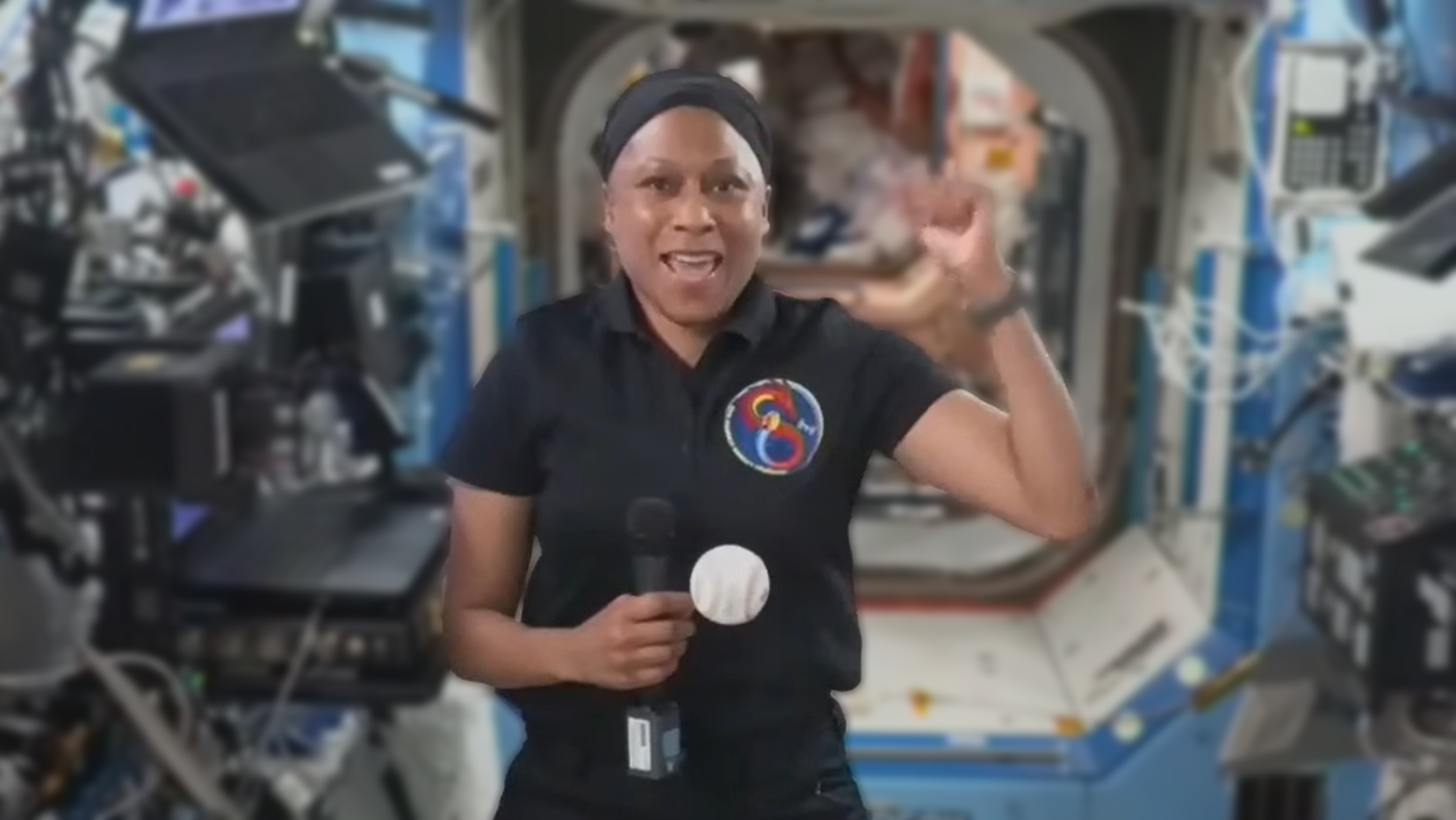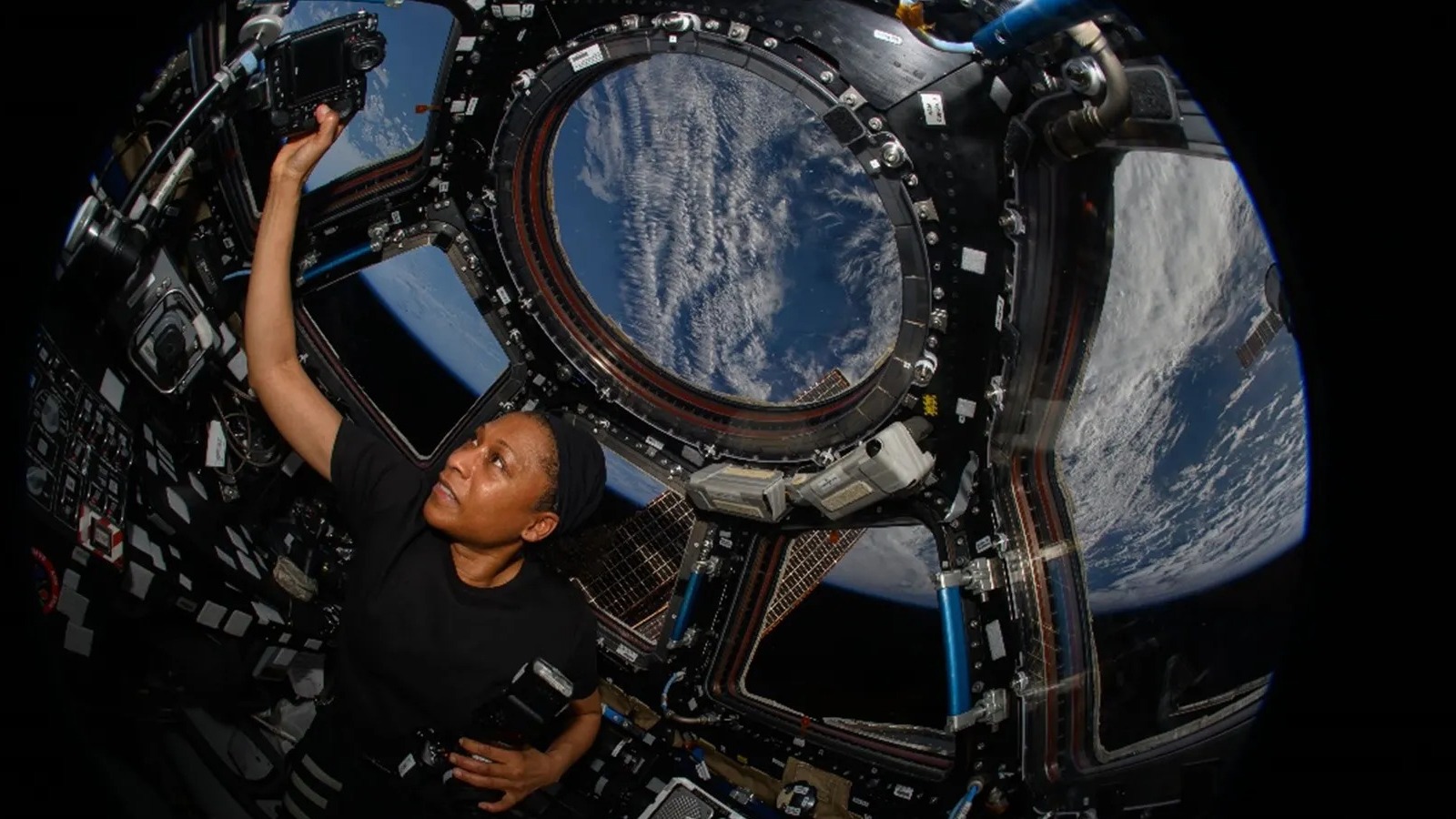
Curveballs could be even tougher to hit in space than they are here on Earth.
International Space Station (ISS) astronaut Jeanette Epps says baseballs could have more spin in space, based on her NASA experience. She shared gameplay tips live with the Baseball Hall of Fame, during a live conversation on Tuesday (June 25).
"The biggest difference is that we just don't have gravity, so everything floats, but you can swing a bat as hard as you can swing it," Epps said during the conversation, which was broadcast on NASA Television.
"You can still ... swing a baseball bat in space, and you could toss a ball, and you can even get it [the ball] to spin so that you can get it to curve and spin," she said. "So as the baseball spins, it'll get a little lift, and you can basically toss it however you like."
Related: Off-World Series! NASA's 'Astros' play baseball on space station (video)

While Epps is not a baseball player, she got plenty of physics and operational experience on the ground before even becoming an astronaut. Her resume prior to NASA includes working at the Ford Motor Company and the Central Intelligence Agency.
Now in space on her first mission, the Syracuse native spoke with Cooperstown through the Black Baseball Initiative, a new exhibit and event series by the Hall of Fame "inspiring people by sharing the stories of those who overcame seemingly insurmountable challenges to play the game they loved," according to the museum's website.

Epps, the second Black woman astronaut to conduct a long-duration space mission, also spoke about the importance of a positive mindset on the field, whether during a game or during life. (Epps has put that into practice: She was supposed to launch to space six years ago, but was unassigned late in the training for reasons outside her control.)
Related: Why NASA astronaut Jeanette Epps waited an extra 6 years for her ISS space mission
"If there's any kind of adversity that does come up, taking a step back and not being reactive" is the best path forward, she shared. "Rather than being reactionary, I like to take a deep breath, take a step back, think about it and be more proactive than just rushing to do something.
"I've had to bring in all the experiences that I've had in my different careers before even coming to NASA," she added, "and use all of those tools that I have to move forward more prepared, more logically, and not so reactionary. If you're reactionary, you can be more irrational in the end. So for me, being prepared and proactive is the best way to keep me calm against certain adversities."







